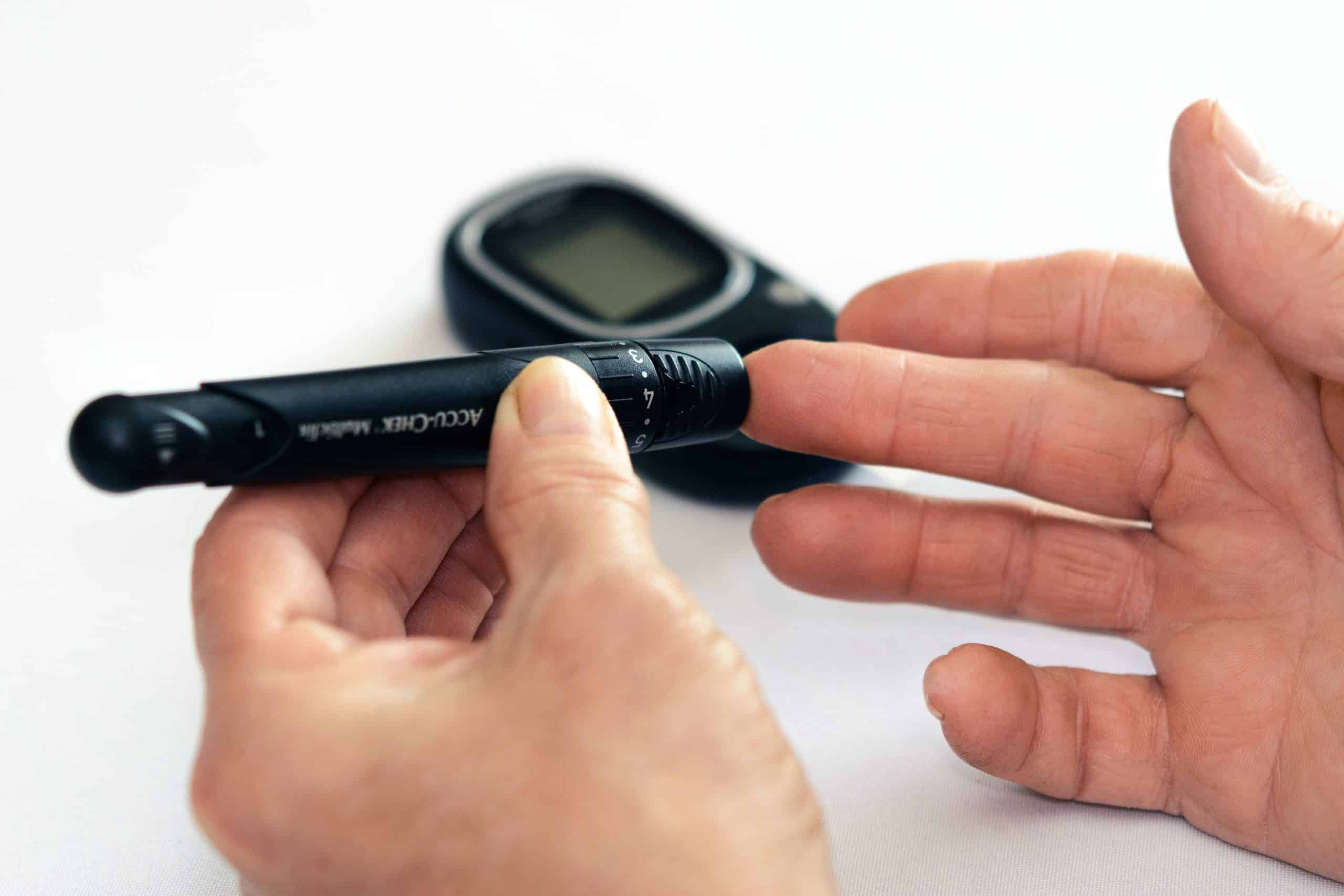Diabetes is a significant health concern worldwide, with over 422 million individuals affected, according to the World Health Organization. This chronic disease, which disrupts the body’s ability to regulate blood glucose, comes in different types and presents various symptoms. It’s important to know the early signs of diabetes to seek treatment immediately and avoid complications. In this article, we will explore the different types of diabetes, the early symptoms, and the measures you can take to manage or prevent this disease.
Understanding Diabetes
Before we delve into the signs of diabetes, it’s essential to understand the disease. Diabetes is a chronic health condition that affects how your body turns food into energy. Most of the food you eat is broken down into sugar (also called glucose) and released into your bloodstream. When your blood sugar goes up, it signals your pancreas to release insulin.
A voir aussi : What is the link between diet and cardiovascular health?
In normal conditions, insulin acts like a key, allowing the glucose to enter the cells for use as energy. But with diabetes, this system doesn’t work. Depending on the type of diabetes, your body either doesn’t produce enough insulin or can’t utilize it effectively. As a result, the glucose remains in your blood, raising your blood sugar levels.
Types of Diabetes
There are several types of diabetes, but the three main types are Type 1, Type 2, and gestational diabetes.
A lire en complément : What are the best strategies for preventing osteoporosis?
Type 1 diabetes, often diagnosed in children and young adults, is an autoimmune condition where the body’s immune system attacks and destroys the insulin-producing cells in the pancreas. As a result, the body produces little to no insulin.
On the other hand, Type 2 diabetes— the most prevalent form— occurs when the body becomes resistant to insulin, leading to high blood sugar levels. This type is often associated with factors such as obesity, family history, aging, and physical inactivity.
Gestational diabetes is a temporary condition that occurs during pregnancy. It may increase the risk of developing Type 2 diabetes later in life for both mother and child.
Early Symptoms of Diabetes
The early symptoms of diabetes can be mild and go unnoticed. However, early detection is crucial to manage the disease and prevent complications.
With Type 1 diabetes, symptoms often come on quickly and severely. They include frequent urination, unusual thirst, extreme hunger, unexplained weight loss, and extreme fatigue. You might also experience mood changes and blurred vision.
In contrast, Type 2 diabetes symptoms can be more subtle and develop slowly over years. Early signs might include frequent infections or wounds that heal slowly, patches of dark, velvety skin in the folds and creases of your body, tingling or numbness in your hands or feet, and even early skin aging.
In the case of gestational diabetes, most women don’t show any noticeable symptoms. This condition usually becomes apparent during routine pregnancy screening tests.
Risk Factors and Complications of Diabetes
Certain risk factors can increase your likelihood of developing diabetes. These include obesity, a family history of diabetes, a sedentary lifestyle, high blood pressure, high cholesterol, and a history of heart disease or stroke.
Left unchecked, diabetes can lead to serious health complications. High blood sugar can damage your eyes, kidneys, nerves, or heart. In severe cases, it can lead to limb amputation.
Managing Diabetes
If you’ve been diagnosed with diabetes, it’s not the end of the world. Many people with diabetes live healthy lives by managing their blood sugar levels effectively. This can be achieved through a combination of diet, exercise, weight management, and, if necessary, medication. Regular check-ups with your healthcare provider are also crucial to monitor your condition and make necessary adjustments to your treatment plan.
In some cases, especially with Type 2 diabetes, lifestyle changes may be enough to control blood sugar levels. Eating a healthy diet rich in fruits, vegetables, lean proteins, and whole grains, maintaining a healthy weight, and staying active can all contribute positively to managing diabetes.
In conclusion, while diabetes is a serious and prevalent health issue, knowing the early signs and risk factors can aid in early detection and management of the disease. This, combined with a healthy lifestyle, can help prevent complications and improve your quality of life.
The Link between Diabetes and Other Health Conditions
There is a significant link between diabetes and other health conditions. This connection is particularly strong with cardiovascular diseases. If you have diabetes, your risk of developing heart disease is almost doubled compared to those without diabetes. This is because high blood glucose levels can damage the blood vessels and the nerves that control the heart.
People with diabetes are also at risk of developing kidney disease, a condition known as diabetic nephropathy. This is because high blood sugar levels can cause damage to the tiny blood vessels in the kidneys, leading to a decrease in their ability to filter waste from the blood.
Moreover, diabetes can lead to nerve damage or neuropathy, particularly in the feet and legs. This happens when high blood sugar levels injure the walls of the tiny blood vessels that nourish the nerves, especially in the legs. This can lead to numbness, tingling, pain, and weakness in the feet and legs, and if not treated promptly, it can lead to loss of sensation in the affected limbs.
In addition, people with diabetes are more prone to have certain skin conditions, including bacterial and fungal infections. High sugar levels in the blood provide an ideal environment for these infections to develop.
Therefore, early detection and controlling blood sugar levels are essential to prevent these associated health conditions.
Prevention and Early Detection of Diabetes
Prevention and early detection are the keys to managing diabetes effectively and avoiding its complications. This starts with understanding the early signs of diabetes and knowing the risk factors.
For instance, symptoms such as frequent urination, increased thirst, constant hunger, unexplained weight loss, and fatigue could be warning signs of diabetes. It’s also crucial to be aware of the risk factors such as obesity, family history, high blood pressure, and lack of physical activity.
Regular health check-ups are crucial for early detection, especially if you have one or more risk factors. During these visits, your healthcare provider can conduct tests to monitor your blood glucose levels and diagnose diabetes, prediabetes, or other related conditions.
Preventing diabetes primarily involves lifestyle changes. Staying physically active, eating a balanced diet, maintaining a healthy weight, and avoiding tobacco use can all significantly reduce your risk of developing this disease.
In the end, it’s crucial to remember that managing a chronic disease like diabetes is a long-term commitment, but with the right approach and lifestyle, it’s entirely possible to live a healthy and fulfilling life.
Conclusion
Diabetes is a widespread health issue that needs diligent attention due to its potential to cause severe complications such as heart disease, kidney damage, neuropathy, and skin conditions. Understanding the early signs of diabetes, like frequent urination and unexplained weight loss, can help in early detection and management of the disease.
Prevention strategies, such as maintaining a healthy weight, staying active, and eating nutrient-rich foods, can significantly lower the risk of diabetes. Regular health check-ups are also vital for keeping track of your blood glucose levels.
However, if you have been diagnosed with diabetes, remember to regularly monitor your blood sugar levels, adhere to your medication, and maintain a healthy lifestyle. Despite its severity, with the right treatment plan and lifestyle modifications, diabetes can be managed effectively, and you can lead a healthy life.






